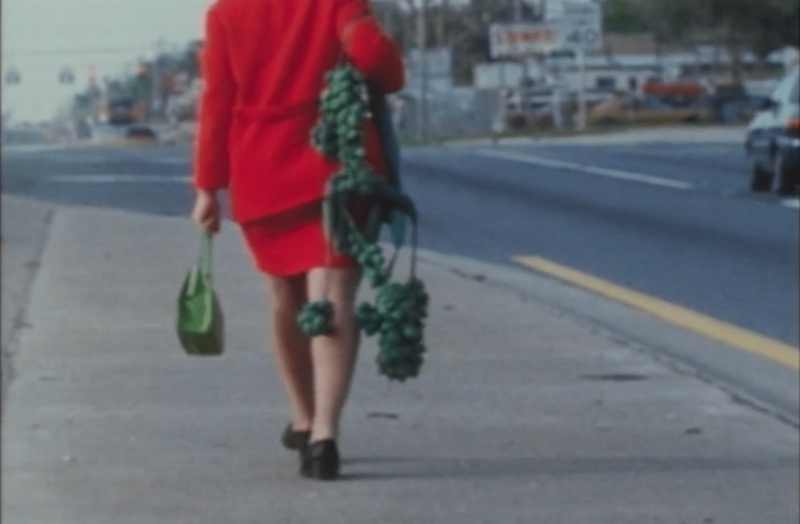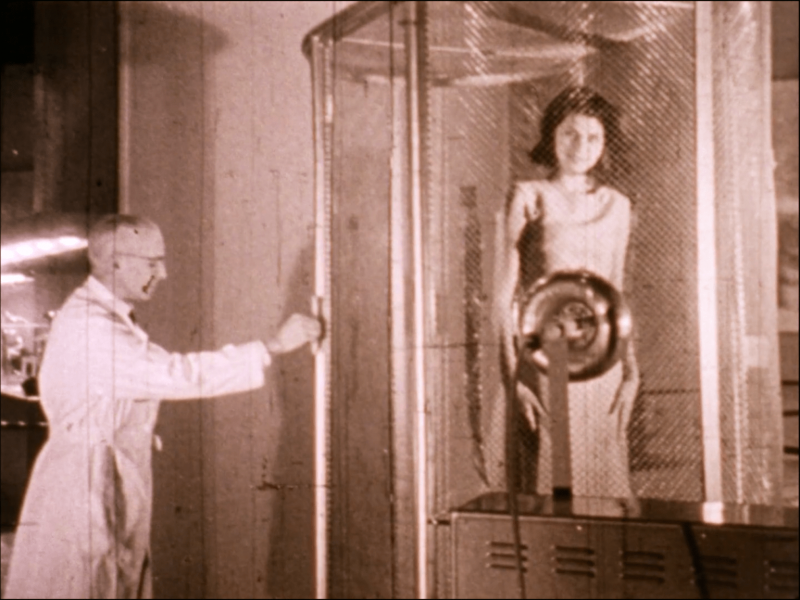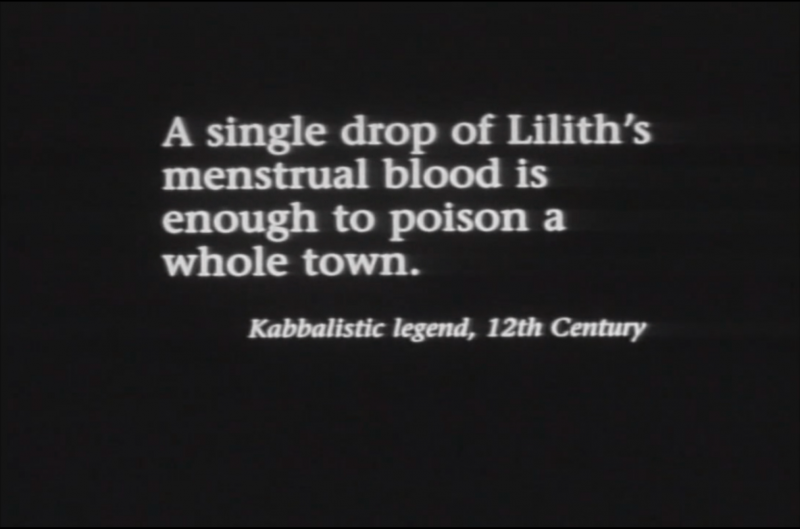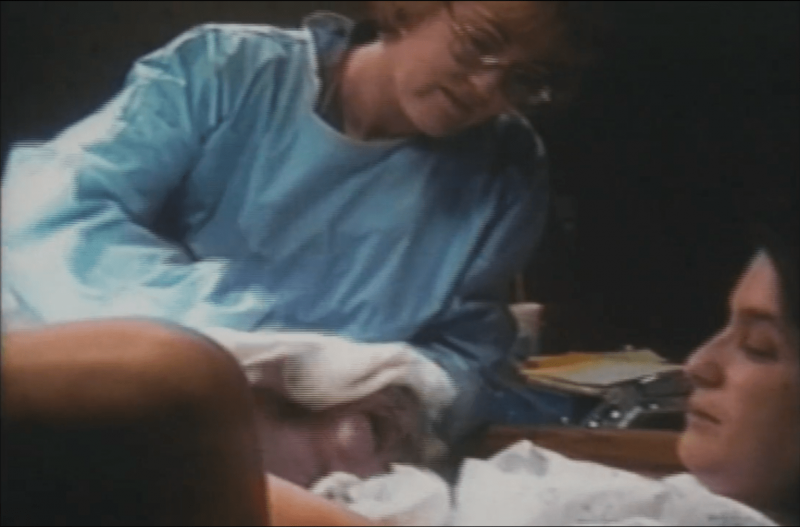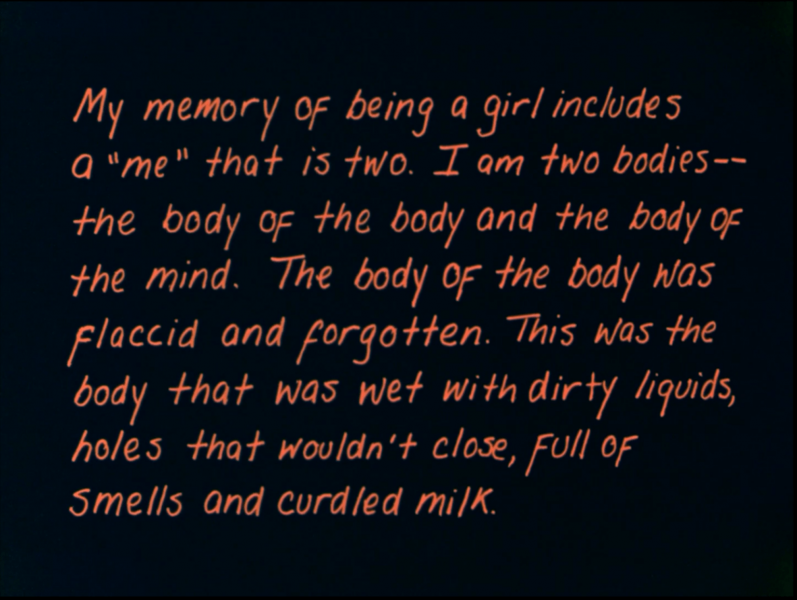
“I am Two Bodies”: The Maternal in Two Lynne Sachs Films
Indiana University Cinema Establishing Shot
By Laura Ivins
September 21, 2022
https://blogs.iu.edu/establishingshot/2022/09/21/i-am-two-bodies-the-maternal-in-two-lynne-sachs-films/#more-13373
Lynne Sachs’ film output is prolific and varied, encompassing documentaries, essay films, non-narrative experiments, and installations. Like many feminist filmmakers, a theme running through her work is the insistence that the personal is important. Whether one’s own body, private moments in a doctor’s office, or one’s sense of family and home, our personal lives are saturated with socio-political meaning. Many meanings are imposed upon us by culture (such as how we experience gender in the world); some meanings we create ourselves (what we choose to value in the face of our acculturation); and some meanings are a rebellion, an attempt to press against the harmful constrictions within culture (reformulating a fluid experience of gender).
Sachs has explored this theme of the personal in different ways across her career, sometimes reflecting inward and sometimes turning the gaze of her camera outward. In The House of Science: a museum of false facts (1991) and A Biography of Lilith (1997), Sachs turns her attention to the complicated relationship cis women have with the maternal.
The House of Science begins with an anecdote of a woman attempting to prevent pregnancy. The narrator tells us about visiting a male gynecologist to request a birth control device. Onscreen we see a mid-century image of a man in a lab coat putting a woman in a cage, and the voiceover tells us about asking this male authority figure for permission to have sex, to have sex while still controlling whether to have a child. He grants her this permission, giving her a diaphragm, but doesn’t tell her how to use it, deflating her power over her own body.
Thirty-one years later, this anecdote should feel like a relic of a previous era when male doctors adjudicated under what circumstances women were allowed to control when they have children. However, the recent Supreme Court decision overturning Roe and Indiana’s own abortion ban that went into effect this past week expose the fragility of all rights and the enduring power of patriarchal authority over our bodies. The salience of The House of Science persists.
A Biography of Lilith uses the mythological Judaic figure of the first woman as synecdoche for misogynistic ideas that continue to plague Western culture. At the same time, the film offers a counternarrative, celebrating birth and the enjoyment one can experience by the feeling of their own body. It’s a contradiction of freedom and constriction.
In her contribution to Essays on the Essay Film (2017), Sachs describes Lilith as “exploring the ruptures that both women and men must confront when transitioning from being autonomous individuals to being parents with responsibilities.”
The film contains footage from the birth of her second daughter. It’s not a birth film, per se, but Lilith exists in conversation with the home birth films of Stan Brakhage and Gunvor Nelson. In a 2007 Camera Obscura article, Sachs reflects on the impact Brakhage’s Window Water Baby Moving (1959) has had on her film practice. In some ways, her interests mirror Brakhage: “Shooting my own material and engaging with the detritus of popular culture in found footage, I, too, am exploring the intimate, often problematic relationship that exists between the camera and the body.”
However, the gaze of the person experiencing childbirth and pregnancy is not the same as the partner watching from a distance removed. The embodiment that Sachs has experienced and her feminist values cause her to reflect, “…I watch this film with great ambivalence, wondering how Jane might have felt there, sprawled out before her husband’s camera, and later across thousands of movie screens. Is she painfully vulnerable, or is she the essence of strength and courage?”
Perhaps both. Lynne Sachs’ films remind us that we move through life carrying this contradiction — bodies vulnerable, but strong.
Watch The House of Science and A Biography of Lilith at the IU Cinema on September 27 at 7 pm as part of the Underground Film Series.
Laura Ivins loves stop motion, home movies, imperfect films, nature hikes, and Stephen Crane’s poetry. She has a PhD from Indiana University and an MFA from Boston University. In addition to watching and writing about movies, sometimes she also makes them.

